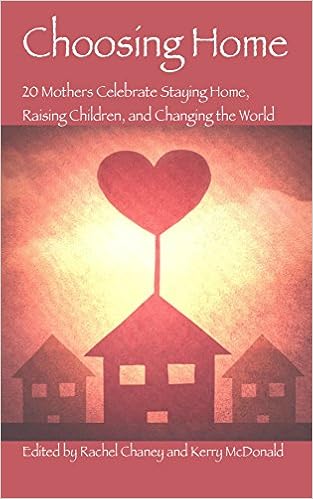Saturday, August 13, 2016
The Back-To-School Marketing Campaign
Our whole family adores the Olympics. Over the past week, we have brought up from the basement our dusty tv monitor and rabbit ears antennae and watched, albeit with a slightly fuzzy screen, many of the Game's events. My older two children, especially, are fascinated and eager to know more about the events they see and the places from which the athletes come.
Since we don't typically watch commercial television, the thing that strikes me most is the advertising. So much focus on consumption! If only I buy this item, go to this place, take this pill, then I'll be happy, healthy, fulfilled. Yesterday, I saw this back-to-school ad by a major retailer. It may seem ordinary enough: kids leaving behind summer camp and swimming pools, organizing all of their back-to-school supplies, and then getting on the big yellow school bus to the musical chorus of "here I go again on my own, going down the only road I've ever known."
The commercial is meant to signal the independence kids are supposed to feel upon returning to school--the only road they've ever known. This is not at all surprising. Despite the myth that government schools were created to foster freedom and opportunity, the origins of our American compulsory schooling system are seedy. Mass compulsory schooling was created to rein-in an increasingly diverse, immigrant-driven population in the mid-nineteenth century that leaders felt threatened national law and order. (Sound familiar?) In Boston in 1852, Horace Mann aggressively enacted the country's first compulsory schooling law mandating children's attendance at school under a legal threat of force. At that time, Boston was bulging with Irish, predominantly Catholic, immigrants who brought with them a culture and a religion that challenged the dominant Protestant, puritan principles. Instead of embracing an increasingly pluralistic society in a great, new democracy, leaders looked to create institutions to promote conformity and obedience.
One of the primary methods to create this conformity and obedience--this law and order--is to systematically separate parents and their children. Mann had a deep distrust of many parents, especially immigrants. As University of Vermont professor, Bob Pepperman Taylor, writes in his book, Horace Mann's Troubling Legacy: "But perhaps the group receiving the greatest scolding from Mann is parents themselves. He questions the competence of a great many parents, but even worse is what he takes to be the perverse moral education provided to children by their corrupt parents." There were certainly many societal changes and challenges in mid-nineteenth century America, as immigration and industry rose and the horrors of slavery were revealed. Mann and his contemporaries saw societal institutions as the way forward for a fledgling democracy. (Mann is also credited with creating America's first state lunatic hospital, in Worcester, Mass. in 1833.) Pepperman Taylor goes on to quote Mann about the need for compulsory schooling: "Were children born with perfect natures, we might expect that they would gradually purify themselves from the vices and corruptions which are now almost enforced them, by the examples of the world. But the same nature by which parents sunk into error and sin, preadapts the children to follow in the course of ancestral degeneracy" (p. 33). Oh and don't forget: Horace Mann homeschooled his own three children.
As children were systematically separated from their parents for increasingly large amounts of time (the first compulsory school attendance law was for only 12 weeks a year of forced schooling for children ages 8 to 14), parents' influences and cultural customs declined and parent-child strife skyrocketed. In her excellent book, The End of American Childhood, UC-Berkeley historian, Paula Fass, writes about the expansion of the American high school in the early twentieth century and its effect of further separating children and parents. She writes: "From then on, for better or for worse, school played a large role in the memories of Americans...For many adolescents, the image of the high school as a second home captures the significance and primacy of the institution on a personal level. It substituted for family and displaced parents" (p. 137).
In the onslaught of back-to-school messaging at this time of year, it is no wonder that retailers would highlight the idea that schooling is synonymous with independence. And parents, eager for their children to be self-reliant, happily purchase the necessary accoutrements. The trouble is that this marketing campaign, which began in the nineteenth century, sneakily replaces supposed independence from parents with total dependence on, and submission to, a government institution with sketchy origins. Rather than being free and independent of the potential parental patriarchy and oppression that Mann and his colleagues fretted over, now America's children spend most of their formative years in institutions of equal or worse oppression, slaves to high-stakes tests, labeling and tracking, and a deeply embedded hierarchy enforced by nineteenth century, industrial hold-overs like bells, grades, straight lines, hall passes, and detention. And lest we think that these relics are necessary to help further equality and opportunity and close the "achievement gap" between rich and poor, it is often these oppressive practices (like zero-tolerance policies) that fuel the "school-to-prison pipeline" and prevent the opportunity and upward mobility that schooling claims to provide.
Behind all of the commercial back-to-school buzz lies the legacy of nineteenth century compulsory schooling statutes: separate children from parents as early and for as long as possible, create a uniform culture of conformity to fuel a consumption-based economy, and convince the masses that this is all for their own good and thus needs to be compulsory. Eat your vegetables, you know. As author and New York State Teacher of the Year, John Taylor Gatto, wrote in his 1991 resignation letter published in The Wall Street Journal: "Government schooling is the most radical adventure in history. It kills the family by monopolizing the best times of childhood and by teaching disrespect for home and parents."
Just as it was intended to do.
Subscribe to:
Post Comments (Atom)
























Bravo for speaking the truth! This is so well articulated and totally speaks to everything I believe and feel. I found your blog a couple months ago and I absolutely love the way you write about unschooling/homeschooling. It always gives me renewed confidence that I am on the right path with my 3 young boys. Thank you for another on point post!!
ReplyDeleteThanks for your kind words! I really appreciate them. ~Kerry
DeleteThanks for this post. We have also been lamenting the onslaught of back-to-school marketing (starting in early July!) aimed at kids who are just getting a taste of freedom.
ReplyDeleteI am curious how you, as someone with a background in education, view how the end of compulsory schooling might affect low-income, minority kids. Although I now view schooling as harmful for all kids, no matter their background, I struggled for a long time with the social justice aspects of keeping our kids out of school. We used to live in DC, where the common belief is that the school system is terrible because all the rich, white residents send their kids to private schools, leaving only kids whose parents aren't as wealthy, educated, involved, etc. in the public schools. I felt a lot of guilt about keeping our kids out of school because we/they wouldn't be there in the system, trying to make it better. Basically, how do you envision the end of compulsory schooling affecting low-income kids, or what other opportunities should there be for families who don't have the freedom to homeschool? Thanks!
Thanks so much for your comment! I hope my post today on "public education vs. public schooling" begins to address your question:
Deletehttp://www.wholefamilylearning.com/2016/08/public-education-vs-public-schooling.html?m=1
http://education.penelopetrunk.com/2015/09/14/what-really-happens-during-the-back-to-school-routine/
ReplyDelete